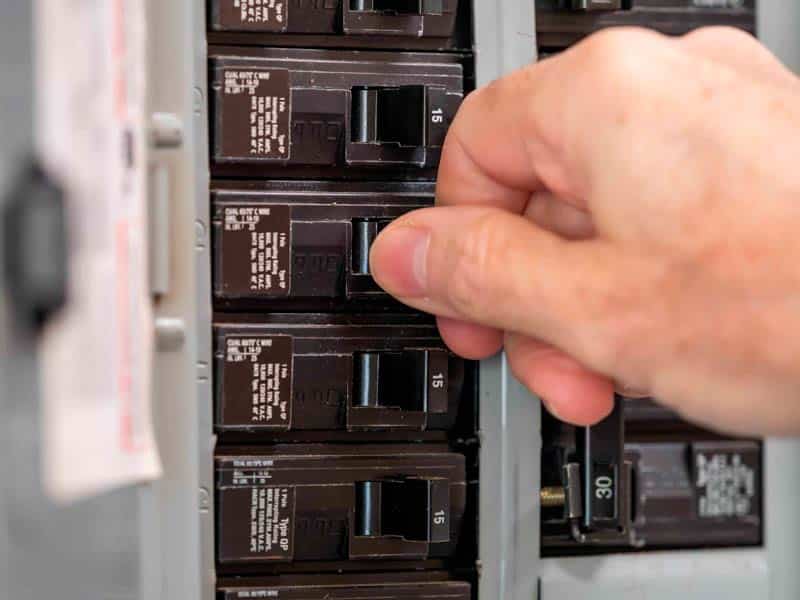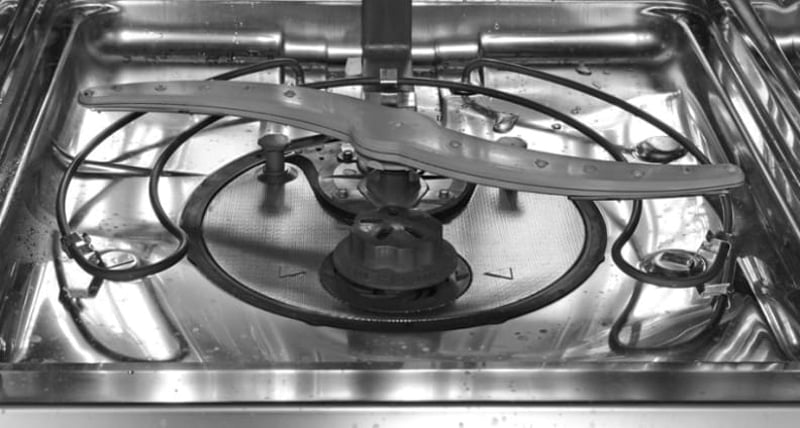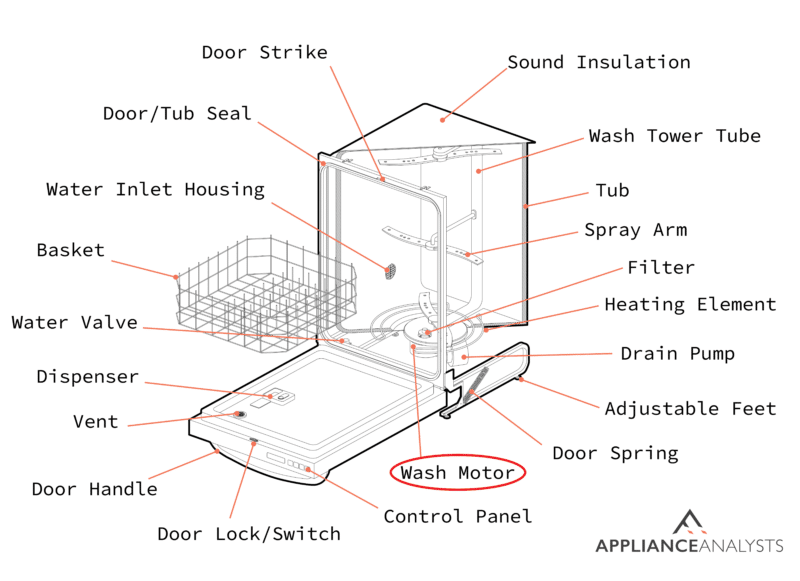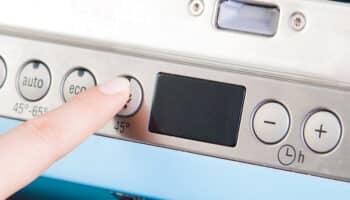We've independently reviewed this article to make sure it's as accurate as we can make it.
To find out more about our article creation and review process, check out our editorial guidelines.
Does your dishwasher keep tripping the breaker?
Unfortunately, dishwasher electrical problems are very common. The good news is that you’ve come to the right place.
If your dishwasher is tripping the breaker, there’s a good chance you’re using GFCI plugs or you have loose circuiting connectors. A faulty heating element, motor, or circuit board could also explain the issue.
Read on to get your dishwasher working again!
Why trust us? This article was written in collaboration with two appliance repair experts: James Blackford & Andy Fulencheck. We have over 25 years of combined appliance repair experience – please see our profiles to learn more about our backgrounds.
6 Reasons Why Your Dishwasher Keeps Tripping Your Circuit Breaker (With Fixes)
In my experience, dishwashers can trip a circuit breaker for numerous reasons. Some of the most common ones are:
#1 Power Issues
If your dishwasher is tripping the circuit breaker, I first recommend checking what type of plug it is plugged into or if it’s hard-wired into the wall.
While dishwashers typically own their 15AMP circuit, they can also share a plug/outlet with the garbage disposal.
If your dishwasher is on a ‘GFCI’ outlet, then this is designed to detect changes in current, such as surges or interruptions in power, so that it can safely turn off the power.
The issue with a dishwasher is that it does not get a constant flow of power while used. Instead, it does draw more power during certain cycles, leading to an overloaded electrical circuit and causing the GFCI socket to trip the circuit breaker.

If you have continual problems with the GFCI tripping – consult a qualified electrician for recommendations.
After your dishwasher trips the power, I recommend resetting the circuit breaker. To do it, identify the tripped breaker, turn it off, and turn it back on.
#2 Worn-Out Connection
In my experience, when a dishwasher breaker keeps tripping, there’s likely a wiring issue.
Luckily, fixing the wires is very simple; you’ll just need to:
- Unplug your dishwasher to prevent any electrical hazards.
- Remove the access panel at the base of your dishwasher to access the junction box that houses the dishwasher wires that connect to your household power.
- You’ll notice wires of three colors: white, black, and green.
- Look for the culprit for the tripped breaker (typically the white or black wires).
- Remove the old cap from the blackened wire, clean it well, and put a new cap on it (you can typically find one at the hardware store for $0.20).
- If the wire is crispy, I recommend trimming it back a bit before applying the new cap. In my experience, it’s also best to wrap electrical tape around each connection.
A worn-out connection can also cause your dishwasher to smell like burned plastic!
If you don’t feel comfortable fixing wiring issues yourself, I recommend calling a professional.
Bear in mind that if your dishwasher circuit breaker trips only during a certain portion of the cycle, there’s likely a failed component, such as a washer motor or drain pump.
When this component engages, it will draw a large amount of amperage, which is when the breaker will trip. I recommend inspecting these components as well and replacing them if necessary.
#3 Heating Element Issues
In my experience, a damaged heating element can also cause your dishwasher to trip the circuit breaker whenever it activates.

I recommend disconnecting your dishwasher, accessing the heating element, and visually inspecting it. Check the connected wires and see if they look blackened or burned.
You can also test the heating element with a multimeter. You should get a reading between 4 and 14 ohms (or the one recommended by the manufacturer).
If you’re getting a different reading, you’ll need to replace the heating element to keep your dishwasher from tripping the circuit breaker again. You can do it yourself or call a professional.
#4 Shortened Transient Voltage Suppression Diode
In my experience, your dishwasher can also trip the circuit breaker if the transient voltage suppressor becomes shortened.
The transient voltage suppressor is a piece of electrical wiring used to help protect your dishwasher from spikes in voltage that could cause major damage to the machine. This kind of spike usually happens when lightning strikes or the house shorts.
I recommend reading the manual and paying attention to the particular transient voltage suppressor that works for your dishwasher. If the transient voltage suppressor is shortened or damaged, it does need to be replaced to make sure that it is going to work properly and that it is not going to damage your dishwasher.
I recommend calling a professional who has done this type of work before.
#5 Faulty Wash Motor
A faulty motor can also explain why your dishwasher keeps tripping the breaker.
You see, all dishwashers have a motor that helps to move the water up and around. However, if the motor is damaged, it can draw more power than normal, which can then cause the circuit board to trip.
In my experience, when this happens, it’s best to replace the wash motor. To do it, you’ll need to turn off the electricity, access the motor through the bottom of your dishwasher, and drain all the water.
Once you’ve done that, please replace the motor.If you don’t feel comfortable replacing it yourself, please call a professional.

If you want to get any replacement part – or see how much one would cost – click to enter your model number in the search bar below. Our partners at AppliancePartsPros stock almost every part with free guides on how to install them.

#6 Issues with Control Circuit Board
If you tried all the fixes above, but your dishwasher still trips the breaker immediately, you’re likely dealing with a faulty circuit board.
The circuit board is like the brain of your appliance – it’s the computer responsible for all the functions of your dishwasher. If the circuit board is not working correctly, it can cause your dishwasher to draw more power than it’s supposed to.
Bear in mind that replacing the circuit board can be expensive, so I recommend considering your dishwasher’s age and whether it’s best to replace the whole unit.
Conclusion
That about covers it! Hopefully, with the help of the five fixes above, you’ll be able to stop your dishwasher from tripping the breaker.
If you take anything away, please check the connections, heating element, wash motor, and control board.
Thank you so much for reading this article. If you ever experience a different issue while using your dishwasher, please check out our related posts below.
Have a great day!









